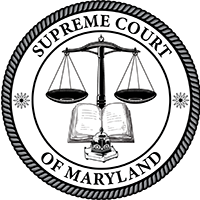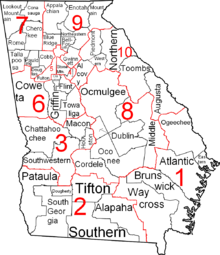
The United States district courts are the trial courts of the U.S. federal judiciary. There is one district court for each federal judicial district. Each district covers one U.S. state or a portion of a state. There is at least one federal courthouse in each district, and many districts have more than one. District court decisions are appealed to the U.S. court of appeals for the circuit in which they reside, except for certain specialized cases that are appealed to the U.S. Court of Appeals for the Federal Circuit or directly to the U.S. Supreme Court.
A county court is a court based in or with a jurisdiction covering one or more counties, which are administrative divisions within a country, not to be confused with the medieval system of county courts held by the high sheriff of each county.
The Courts of England and Wales, supported administratively by His Majesty's Courts and Tribunals Service, are the civil and criminal courts responsible for the administration of justice in England and Wales.
In common law systems, a superior court is a court of general jurisdiction over civil and criminal legal cases. A superior court is "superior" in relation to a court with limited jurisdiction, which is restricted to civil cases involving monetary amounts with a specific limit, or criminal cases involving offenses of a less serious nature. A superior court may hear appeals from lower courts. For courts of general jurisdiction in civil law system, see ordinary court.

The Supreme Court of Maryland is the highest court of the U.S. state of Maryland. The court, which is composed of one chief justice and six associate justices, meets in the Robert C. Murphy Courts of Appeal Building in the state capital, Annapolis. The term of the Court begins the second Monday of September. The Court is unique among American courts in that the justices wear red robes.

The government of Maryland is conducted according to the Maryland Constitution. The United States is a federation; consequently, the government of Maryland, like the other 49 state governments, has exclusive authority over matters that lie entirely within the state's borders, except as limited by the Constitution of the United States.
The federal judiciary of the United States is one of the three branches of the federal government of the United States organized under the United States Constitution and laws of the federal government. The U.S. federal judiciary consists primarily of the U.S. Supreme Court, the U.S. Courts of Appeals, and the U.S. District Courts. It also includes a variety of other lesser federal tribunals.
The judiciary of Australia comprises judges who sit in federal courts and courts of the States and Territories of Australia. The High Court of Australia sits at the apex of the Australian court hierarchy as the ultimate court of appeal on matters of both federal and State law.

The Supreme Court of Georgia is the highest judicial authority of the U.S. state of Georgia. The court was established in 1845 as a three-member panel, increased in number to six, then to seven in 1945, and finally to nine in 2017. Since 1896, the justices have been elected by the people of the state. The justices are currently elected in statewide non-partisan elections for six-year terms, with any vacancies filled through an appointment by the Governor.
The Superior Court is the state court in the U.S. state of New Jersey, with statewide trial and appellate jurisdiction. The New Jersey Constitution of 1947 establishes the power of the New Jersey courts. Under the State Constitution, "'judicial power shall be vested in a Supreme Court, a Superior Court, County Courts and inferior courts of limited jurisdiction.'" The Superior Court has three divisions: the Appellate Division is essentially an intermediate appellate court while the Law and Chancery Divisions function as trial courts. The State Constitution renders the New Jersey Superior Court, Appellate Division the intermediate appellate court, and "[a]ppeals may be taken to the Appellate Division of the Superior Court from the law and chancery divisions of the Superior Court and in such other causes as may be provided by law." Each division is in turn divided into various parts. "The trial divisions of the Superior Court are the principal trial courts of New Jersey. They are located within the State's various judicial geographic units, called 'vicinages,' R. 1:33-2(a), and are organized into two basic divisions: the Chancery Division and the Law Division".

The state government of Georgia is the U.S. state governmental body established by the Georgia State Constitution. It is a republican form of government with three branches: the legislature, executive, and judiciary. Through a system of separation of powers or "checks and balances", each of these branches has some authority to act on its own, some authority to regulate the other two branches, and has some of its own authority, in turn, regulated by the other branches. The seat of government for Georgia is located in Atlanta.
The Government of Guam (GovGuam) is a presidential representative democratic system, whereby the president is the head of state and the governor is head of government, and of a multi-party system. Guam is an organized, unincorporated territory of the United States with policy relations between Guam and the US under the jurisdiction of the Office of Insular Affairs.
The Judiciary of Vermont is the state court system of Vermont, charged with Vermont law.

The South Carolina Circuit Court is the state court of general jurisdiction of the U.S. state of South Carolina. It consists of a civil division and a criminal division.
The Circuit Courts of Maryland are the state trial courts of general jurisdiction in Maryland. They are Maryland's highest courts of record exercising original jurisdiction at law and in equity in all civil and criminal matters, and have such additional powers and jurisdiction as conferred by the Maryland Constitution of 1867 as amended, or by law. The Circuit Courts also preside over divorce and most family law matters. Probate and estate matters are handled by a separate Orphans' Court. The Circuit Courts are the only Maryland state courts empowered to conduct jury trials.

Wyoming District Courts are the state trial courts of general jurisdiction in Wyoming.
The Superior Court is North Carolina's general jurisdiction trial court. It was established in 1777 and is North Carolina's oldest court.
The Judiciary of Georgia is a branch of the government of the State of Georgia established in Article Six of the Georgia constitution. This Article contains ten Sections which discuss the different courts, their powers and jurisdictions, and the role of the district attorney in Georgia's justice system.
The Judiciary of Virginia is defined under the Constitution and law of Virginia and is composed of the Supreme Court of Virginia and subordinate courts, including the Court of Appeals, the Circuit Courts, and the General District Courts. Its administration is headed by the Chief Justice of the Supreme Court, the Judicial Council, the Committee on District Courts, the Judicial Conferences, the Judicial Inquiry and Review Commission, and various other offices and officers.
The judiciary of Illinois is the unified court system of Illinois primarily responsible for applying the Constitution and law of Illinois. It consists of the Supreme Court, the Appellate Court, and circuit courts. The Supreme Court oversees the administration of the court system.







